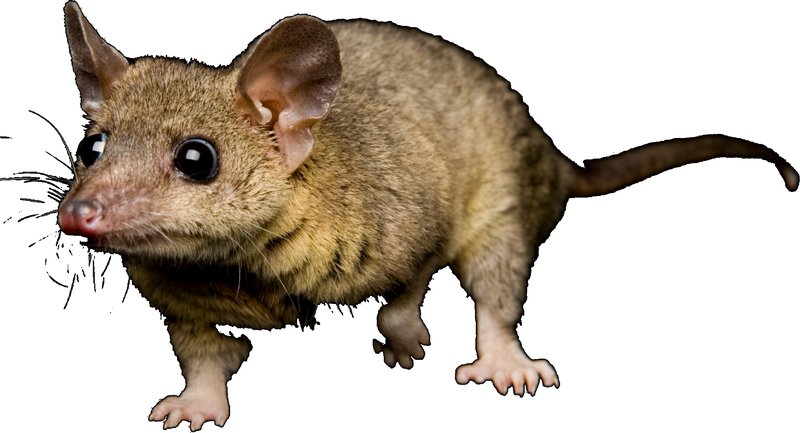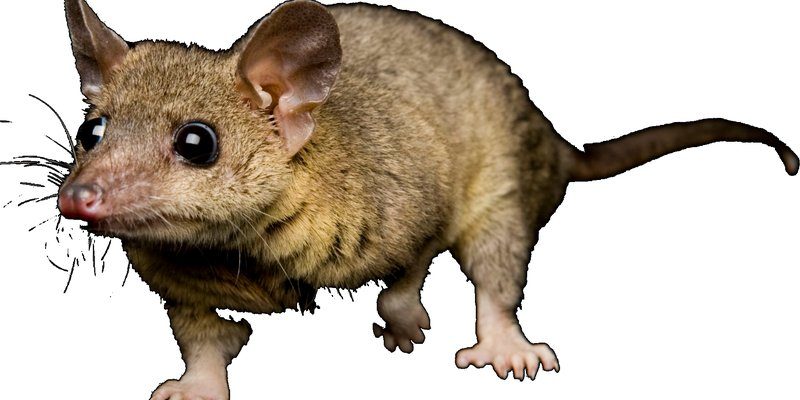
Opossums are not only the only marsupials native to North America but also hold the title of the most ancient surviving lineage of marsupials. They’re like the time capsules of the animal world, giving us a glimpse into a bygone era. So, grab your coffee, and let’s dive into their evolutionary history to understand how they’ve managed to thrive in an ever-changing world.
What Are Opossums, Anyway?
Before we dig into their history, let’s clarify what we mean by “opossum.” These creatures are part of the order Didelphimorphia, which includes around 100 different species. The Virginia opossum, the most well-known type, is easily recognizable by its pointed snout and hairless tail. Think of them as the original survivors of the animal kingdom—while many species come and go, opossums have been around for a long time.
Opossums are nocturnal, meaning they are most active at night. They have a unique ability to “play dead” when threatened, a defense mechanism that often confuses predators. It’s like they’re saying, “If I can’t run away, I’ll just convince you I’m not worth the trouble.” This quirky behavior adds to their charm, but it also highlights their long history of adapting to survive.
The Origins of Opossums
The evolutionary roots of opossums can be traced back to around 70 million years ago during the Late Cretaceous period. Imagine the Earth teeming with giant dinosaurs and lush greenery—this is when the earliest marsupials began to emerge. These small, agile creatures were likely similar to modern-day opossums, although they existed in a vastly different world.
Initially, marsupials thrived in what is now South America. They began to spread northward, eventually making their way into North America around 20 million years ago. It’s like they took a road trip to escape the competition. As they migrated, they adapted to various environments, becoming the versatile survivors we see today.
Opossums and Their Unique Adaptations
Opossums have developed several fascinating adaptations that have helped them survive and flourish. For example, their immunity to certain venoms allows them to feast on pests like ticks and even venomous snakes. Imagine being the brave little warrior of the animal kingdom, willing to munch on what others would balk at!
Additionally, their diet is incredibly varied. Opossums are opportunistic feeders, meaning they’ll eat just about anything. From fruits and insects to small rodents and even carrion, they have a diverse menu that helps them adapt to different habitats. This adaptability is a key factor in their longevity as a species.
Another incredible adaptation is their reproductive strategy. Opossums are marsupials, which means they give birth to relatively undeveloped young. After a brief gestation, these mini-opossums crawl into their mother’s pouch to continue developing. This strategy allows them to reproduce quickly, adapting to changing environments and food availability. It’s like having a little nursery on-the-go!
The Role of Opossums in Ecosystems
Opossums play a crucial role in their ecosystems, acting as natural pest controllers. With their appetite for ticks, they help reduce the spread of diseases like Lyme disease. In a way, they’re like your friendly neighborhood gardener, keeping the bug population in check without any chemicals.
Moreover, they contribute to seed dispersal. When opossums munch on fruits, they help spread seeds through their droppings. This process helps maintain healthy plant life, ensuring the ecosystem thrives. So, the next time you see an opossum, remember they’re not just rummaging through your trash—they’re helping the environment!
Their scavenging habits also serve an important purpose. By consuming carrion, they help clean up the environment, preventing the spread of diseases. It’s nature’s cleanup crew at work, and opossums are leading the charge.
Opossums and Human Interaction
Throughout history, the relationship between humans and opossums has been a mixed bag. On one hand, many people view them as pests, especially when they invade gardens or homes. On the other hand, their beneficial traits, like pest control and scavenging, make them valuable allies in maintaining a healthy yard.
Interestingly, opossums are often misunderstood. They have a reputation for being dirty or dangerous, but in reality, they’re quite clean animals. They groom themselves regularly, much like cats. By dispelling these myths, we can appreciate their role in our ecosystems.
You might be wondering about their nocturnal lifestyle. While some people find this creepy, it’s essential for their survival. Being active at night helps them avoid predators, while still finding plenty of food to munch on. So, the next time you spot an opossum scurrying away, remember they’re just living their best life, doing what they do best.
The Future of Opossums
As we look to the future, the survival of opossums is increasingly threatened by habitat loss and hunting. Urbanization has led to fewer natural habitats for these creatures, making it essential to protect their environments. It’s like squeezing an already-packed suitcase—there’s just no room for them to thrive.
However, as adaptable creatures, opossums are resilient. Their ability to live in a variety of settings, including urban areas, gives them a fighting chance. By planting native species, reducing pesticide use, and educating ourselves about their importance, we can help create a welcoming environment for them.
In the grand scheme of things, opossums highlight the delicate balance of nature. They remind us of the importance of biodiversity and the need to coexist peacefully with all creatures, big and small. So, the next time you see one in your yard, give it a nod of respect—it’s been around longer than many of us can imagine.
The evolutionary history of the opossum is a remarkable tale of survival and adaptation. From their ancient beginnings to their current roles in our ecosystems, these little marsupials have shown us the power of resilience. They may not be the flashiest animals out there, but their unique traits and quirky behaviors make them fascinating in their own right.
As we continue to share our spaces with opossums, let’s appreciate their contributions and protect their habitats. After all, these creatures have been navigating the challenges of life for millions of years, and they deserve a place in our world. So, next time you catch a glimpse of an opossum, remember: they’re not just survivors; they’re an essential part of the story of life on Earth.

